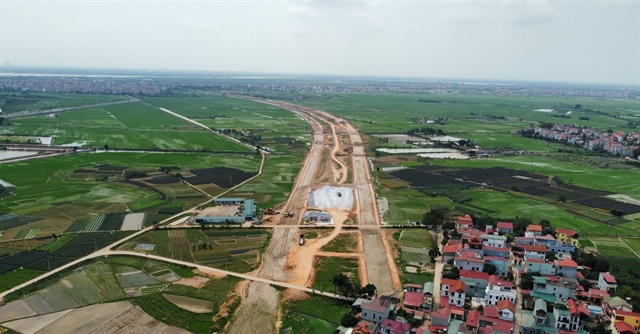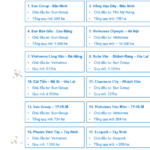Inclusion and Value: Expanding Vietnam’s Agricultural Land Opportunities
At a symposium titled “New Opportunities in the Real Estate Market” hosted by Dan Viet newspaper on August 1, 2024, Mr. Le Van Binh, Deputy Director of the Department of Land, Ministry of Natural Resources and Environment, shared insights on the evolving nature of real estate discussions.
In the past, conversations centered around residential properties, industrial real estate, and commercial services land. However, with the upcoming Land Law 2024, there is a renewed focus on agricultural land use rights.
The new law will permit individuals who are not directly engaged in agricultural production to acquire rice land through transfer or inheritance. This marks a significant shift from the previous restriction, which allowed only those directly involved in agricultural production to acquire rice land.
According to Mr. Binh, the updated regulations enable individuals with the means and ability to cultivate rice to invest in agricultural production, even if they are not direct producers. To acquire land beyond the prescribed limit, individuals must establish a business and obtain approval for their land use plan from the state.
“As a result, agricultural land will become more valuable,” Mr. Binh predicted. “With the Land Law 2024 coming into force, this segment is expected to thrive. The land use rights of farmers will have value, encouraging them to invest in land improvement to increase profitability. Moreover, those acquiring agricultural land will recognize its worth and strive to enhance its value through capital investment, technology, and technical expertise.”

The implementation of the Land Law 2024 is expected to attract more investors to agricultural land. Image: Hong Khanh
|
Attorney Truong Anh Tu, Chairman of TAT Law Firm, shared his perspective with VietNamNet, highlighting the benefits of this new policy for Vietnamese citizens and the nation’s agricultural sector.
“Now, investors who have never farmed can purchase land to invest in high-tech agriculture, utilizing modern machinery, equipment, and hired labor for cultivation and planting,” he explained. “This means that anyone with financial capacity can enter this field, opening up new business opportunities and attracting investment into agriculture, boosting rural economic development, creating jobs, and improving workers’ lives.”
Mr. Tu also emphasized the potential for optimizing agricultural land use, reducing instances of land abandonment or inefficient land use.
A Vibrant but Stable Market
Between 2020 and 2022, transactions in agricultural real estate were lively, with businesses and individuals actively acquiring such land, including rice land, for the purpose of converting it into residential plots. This trend created a “frenzy” in the market at that time.
More recently, investors have been seeking to purchase agricultural land, particularly rice land, in anticipation of a potential surge in demand, especially with the new laws taking effect from August 1, 2024.
A leader of a real estate company shared that while there haven’t been many investors in the Red River Delta region, areas with large-scale garden and mountainous lands, such as the Central Highlands and provinces neighboring Ho Chi Minh City, have attracted more attention.
While the market for agricultural land is expected to become more vibrant, the possibility of a “frenzy” in agricultural land is unlikely. The new regulations primarily benefit farmers and businesses investing in agriculture. For those aiming to acquire agricultural land for conversion and resale, the process is challenging due to stringent conditions and regulations surrounding land use change.
“With strict requirements for changing land use purposes and the risk of land revocation, investors who purchase agricultural land must carefully plan their usage. The recent surge in prices for agricultural land in many areas has also increased the long-term outlook for profitability,” the leader of the real estate company cautioned.
Regarding the conversion of agricultural land for other purposes, Deputy Director Le Van Binh emphasized that it must adhere to the master plan and maintain the allocated area of over 3 million hectares of rice land to ensure national food security.
“The national planning allocated to the localities must respect and maintain this target. Additionally, there are flexible provisions for converting certain types of agricultural land for annual crops, aquaculture, and adjusting the crop and livestock structure according to legal regulations,” Mr. Binh concluded.
Hong Khanh















